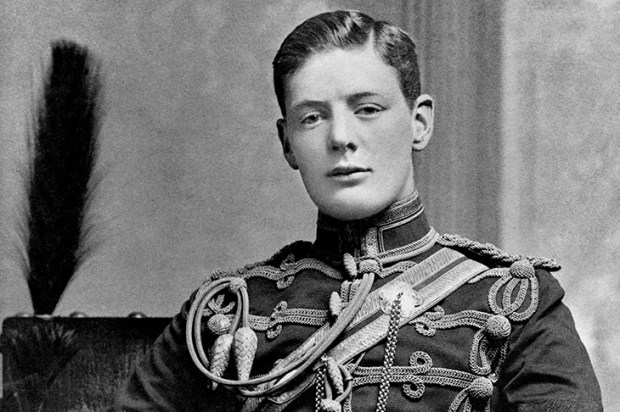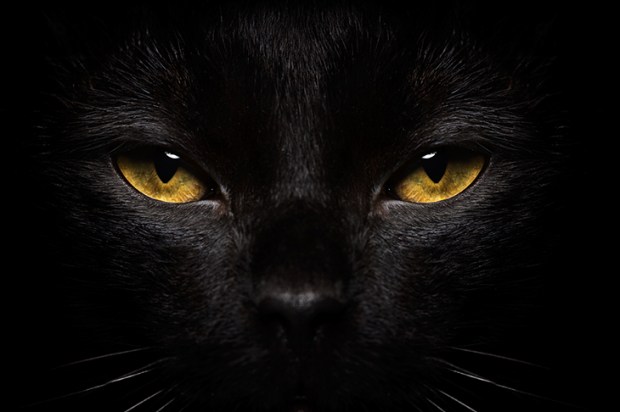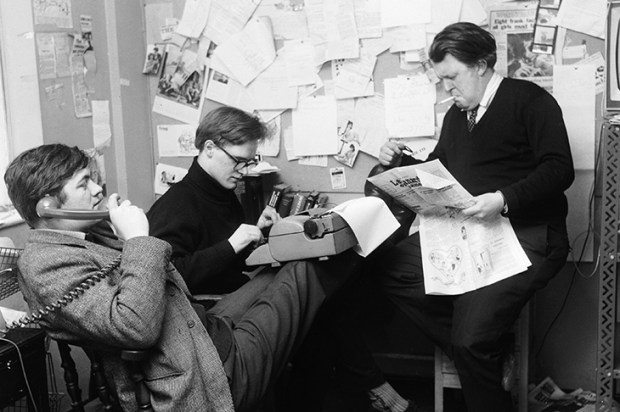Kiev
‘What the hell’s going to happen to your poor country?’ I ask the man in the flea market not far from St Sophia cathedral (Delingpole tourist rating: total must-see).
‘What do you think?’
I shrug. ‘Partition, maybe.’
The man shrugs back. We agree that what Putin is doing in the east is appalling. But he’s not terribly enthused by what the Americans are doing either. ‘They want to arm us. But you know where the fighting will take place: here,’ he says, meaning Ukraine in general rather than Kiev in particular.
‘You could leave,’ I suggest. ‘Your English is good.’ (Unusually so. Communication is generally quite hard in Kiev if you don’t speak Russian or Ukrainian.)
‘Where? To Europe?’ He says the word with mild contempt. ‘Ukraine is my home. It’s where my roots are. It’s a nice place.’
I like this man. I like most of the people I’ve met on this flying visit. Their economy is tanking — it has contracted 6.5 per cent this year — and so is their unpronounceable currency, the hryvnia. Those soldiers who go to fight in the east actually have to pay for their own uniforms and weapons. A pretty, bright, educated estate agent who was earning $3,000 a month six months ago tells me she has seen her monthly income fall to just $1,000. She is thinking of emigrating with her husband and two children. To Canada maybe, where there is a large Ukrainian community.
But for most escape isn’t an option. And what I admire about these people is the stoicism and dignity with which they’re bearing it. As a rare tourist these days, you’re a sitting duck. They could be all over you, begging, touting, trying to find new ways to rip you off. Instead they maintain a polite distance, friendly enough if you need them — apart from the frosty Communist-era babushkas — but never desperately effusive.
The guy in the market is a case in point. I’m looking for second world war memorabilia, German ideally — which he won’t sell on principle and anyway, he says, is all faked. Instead he tempts me with an obviously original Soviet officer’s uniform — £160 — a damn fair starting price, given that I could sell it at home for about four times as much. He’s very honest about which of his wares are replicas and which aren’t. And he doesn’t push: if I don’t want to buy, fine.
If you’re into disaster zone arbitrage, now is a great time to visit Kiev. The prices are low and getting lower (an espresso will set you back 30p; a beer not much more), though the restaurant food is at best average and everywhere’s almost empty so you do worry about the freshness with such poor turnover. I tried the chicken Kiev for obvious reasons. Don’t. But do try the syrniki which are more delicious than pancakes made of curd cheese and raisins have any right to be.
And you get the tourist sites almost to yourself. In the spooky, eerily intense caves beneath the Lavra monastery complex — a place of intense spirituality since they were first inhabited by 11th-century monks — it’s just you and the Ukrainian faithful, the women with their heads covered with scarves and their legs with rented long skirts, kissing the sarcophagi of sundry mysteriously preserved saints. By flickering candlelight, you sometimes glimpse the blackened desiccated flesh of a saint’s hand protruding from the ancient fabric of their ornate burial garments.
I’d also recommend the vertiginous zipwire plunge across the River Dnieper. ‘Woah,’ you say to yourself. ‘Ukrainian safety standards.’ But at just £6 a go, you really can’t not do it. If you survive (you will just close your eyes on the bit where you’re over the main road with all the whizzing traffic) you’ll find yourself in a lovely tranquil wooded area, with a fine sandy beach running the length of the river bank, and see ordinary Ukrainians at play.
Fishermen sit by their rods; couples canoodle; old men play dominoes. What they have in common, you might notice, is that they’re all finding ways to eke out the time without actually having to spend any money. Because, obviously, they’ve got no money. These lovely people are stuffed.
Before I came to Kiev I could afford to be callous. ‘The last thing we want is western Ukraine in the EU because all the productivity is the industrial east. As for the east, if Putin wants the Russophile part of the country, let him have it. What’s our interest in expending blood and treasure to protect this borderland basket case?’ I used to argue.
But I don’t feel so indifferent any more. Though I haven’t got a solution — does anyone? — one thing I do know is that these people need your tourist dollar. The sweet, eager-to-help young girls you see staving off boredom at the reception desks of empty hotels and restaurants; the young men running the myriad stalls selling coffee that hardly anyone in this coffee-addicted country can afford to buy. They deserve better than this.
No, you’re not going to get shot down by a missile. (Everyone’s first worry.) And the broad avenues — a weird confection of Soviet-era grim, Blackpool rococo, kitsch monuments and decrepit 19th-century grandeur — feel safe to wander, even at night, despite the mild menace of the odd bored paramilitary or oligarch with obligatory heavies. It is, after all, what all the young locals do on warm summer evenings, getting their free entertainment from the excellent buskers doing tight rock covers or singing plaintive Ukrainian folk songs to rapt, appreciative crowds.
In fact, if we’re honest, there isn’t a great deal else to do in Kiev other than to wander, stopping for the occasional beer or coffee or roll of souvenir Putin bogpaper. But that too is part of its charm. No pressure. Just go.
Got something to add? Join the discussion and comment below.
Get 10 issues for just $10
Subscribe to The Spectator Australia today for the next 10 magazine issues, plus full online access, for just $10.
You might disagree with half of it, but you’ll enjoy reading all of it. Try your first month for free, then just $2 a week for the remainder of your first year.















Comments
Don't miss out
Join the conversation with other Spectator Australia readers. Subscribe to leave a comment.
SUBSCRIBEAlready a subscriber? Log in